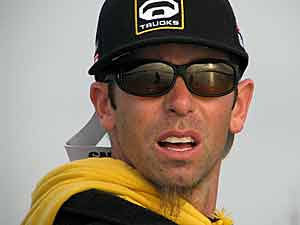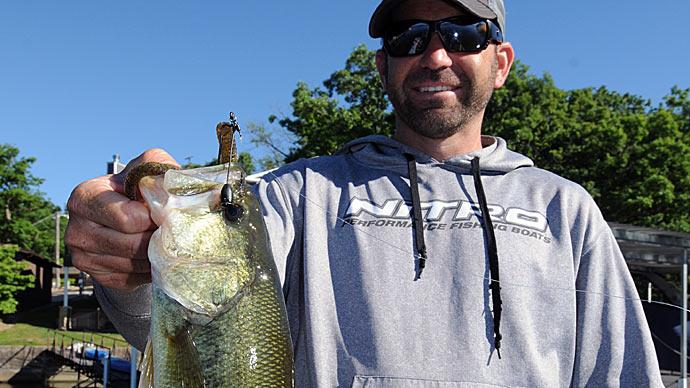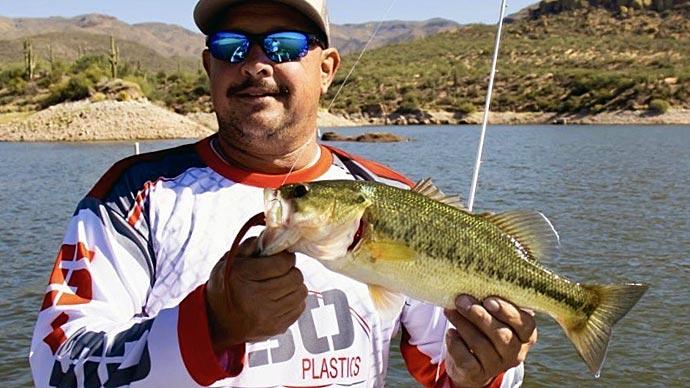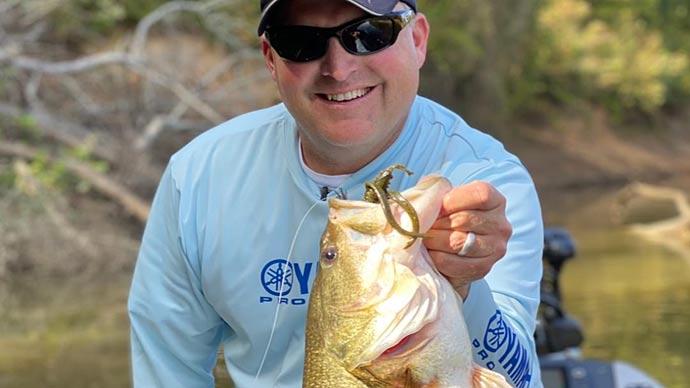
Not too long ago, I was fishing at an Invitational tournament at Sam Rayburn Reservoir near Jasper, TX. Despite the five days of continuous rain and thunderstorms, I had a great time, caught fish, and met awesome folks around the country. In three days of fishing the tournament, I drew partners from Louisiana, Michigan, and Iowa.
The bass were acting goofy, as they often do in the springtime. In some areas of the lake, they were trying to go shallow to spawn (lay their eggs). In other areas, they were staging, preparing to spawn in a week or two. As I fished around in the creeks, I found the water slightly stained due to the rainfall we were experiencing. At times, I felt like I was seeing those white spots along the banks of the creeks, indicative of bass spawning beds. I got excited because if there is one thing I love to do, it is sight fish for bass in the spring. I love it. To me, nothing beats going one on one with a bass that I can see protecting a spawning bed. I have spent over an hour changing baits and gear, trying to coax a bedding bass into biting, only to turn it back and watch it return to its bed.
Like most bass fishermen, I rely on a good set of polarized glasses to eliminate the glare from the water, allowing me to see things you can't see with the naked eye, such as bedding bass. They will also protect your eyes from dangerous Ultraviolet rays that can burn and damage your eyes.
Whether you make part of your living fishing or simply enjoy the sport of fishing, you need to invest in a quality set of glasses. My choice for polarized glasses is the Bat Eye series from Solar Bat. They are designed and manufactured by eye doctors. Who else should know better than eye doctors what I need to protect my eyes and see through the glare of the water?
The Bat Eyes that I use have interchangeable lenses. They come with smoke-colored lenses for bright sunny days and amber lenses for cloudy days or low light conditions. However, my personal favorite is the new green lenses available. Regardless of the color, you can easily change out lenses to meet the ever-changing conditions on the water, eliminating the need to carry several pairs of glasses.
I've always worn eye protection while operating or riding in a boat at high speeds, even at night. There's nothing like a turkey gnat slamming into your eye at 65 miles per hour to ruin a great day of fishing. As a person who has to get up every morning and put on glasses or contact lenses to see, I can appreciate the value of eyesight, or the lack thereof.
While fishing on the first day of the Sam Rayburn tournament with my partner Homer Humphries, I witnessed firsthand the importance of wearing a good pair of glasses. Homer and I were throwing spinnerbaits over some hydrilla beds. After 30 minutes, Homer hooked into a nice 3-pounder and called for the net. Homer fought the fish to the boat, close enough for me to get the net under the fish and lift it into the boat. In the excitement, Homer didn't realize that he still had some pressure on the rod from the weight of the fish. As he reached into the net to remove the white spinnerbait from the fish's mouth, the spinnerbait came flying out of the net, striking him dead center in the left lens of his glasses! The blow and the surprise of it all nearly sent him to his knees right there on the boat's deck. We both looked at each other in complete surprise and dismay, realizing how close Homer had just come to possibly losing his left eye.
What an eye-opener, pardon the pun. I realize that good, polarized fishing glasses can be pricey, but what is your eyesight worth? At around $100, don't you think Homer was glad he put that $100 in his sunglasses? This is another reason I like the Solar Bat, Bat Eye. It's like getting two pairs of glasses for the price of one since they come with an extra set of lenses.
No matter what glasses you purchase, ensure they are high quality with shock-resistant lenses. Then, after you purchase them, please use them regardless of the light conditions you encounter. You might not think you need them to block the water's glare, but you are still susceptible to dangerous UV rays on cloudy days, not to mention the constant hazard to your eyes from foreign objects. While night fishing, I use a pair of clear-lens safety glasses or goggles from numerous retail outlets. I would encourage you to do the same.
Until next time, enjoy the outdoors.
Tom




